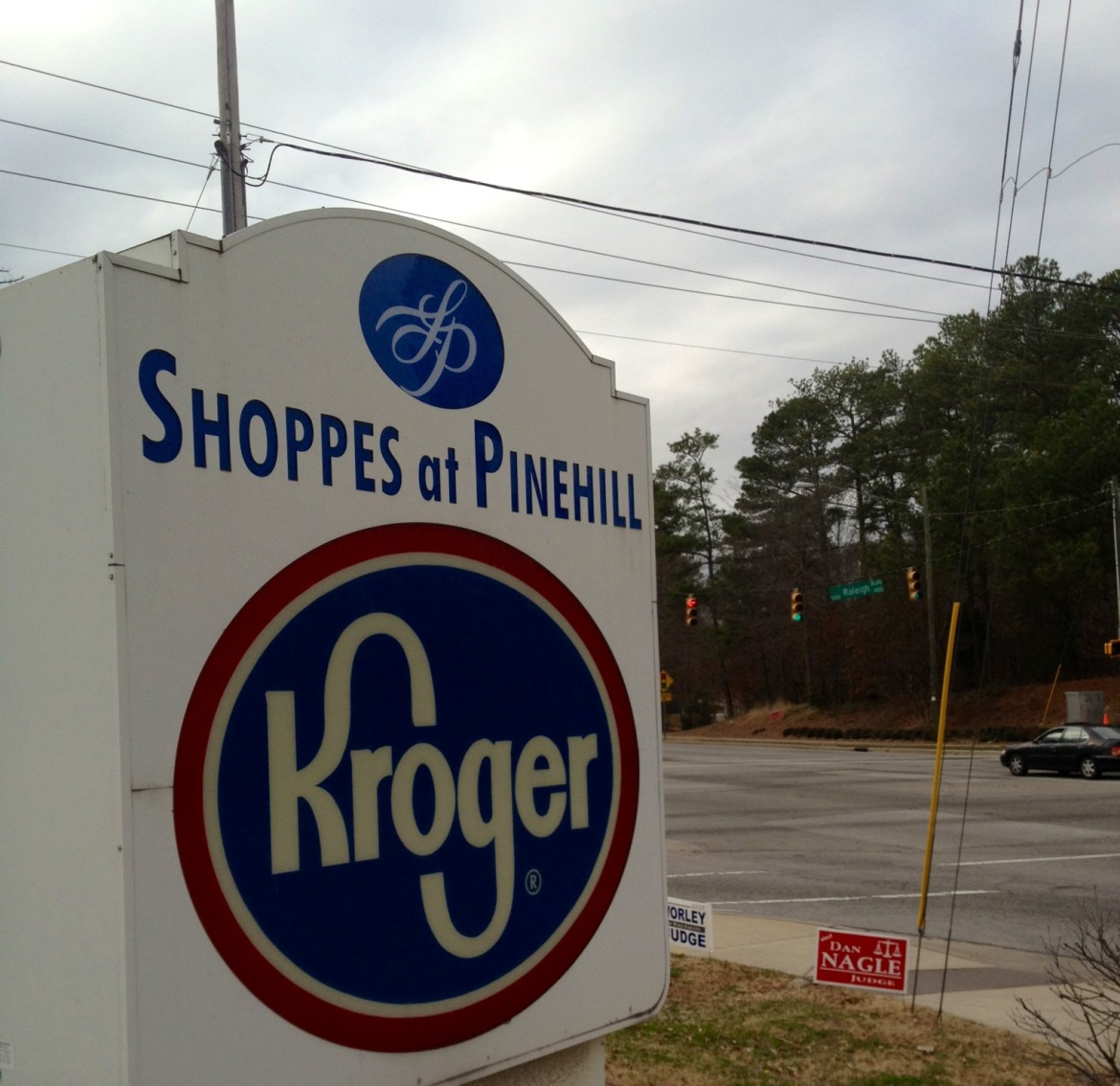In a move that shocked residents of Southeast Raleigh, one of the nation’s leading grocery chains, Kroger, announced it is shuttering two stores in the area.
According to a press release from Kroger, the stores at 1610 Martin Luther King Jr. Boulevard and 4111 New Bern Avenue have not been profitable.
“Although Kroger has continued to use its resources to improve each location, both have been unprofitable for the company,” the release said.
The closures were first reported in The News & Observer. Prior to the article’s publication on Nov. 18, no residents of the neighborhoods surrounding the stores were notified.
[media-credit id=2 align=”alignleft” width=”300″] [/media-credit]Lifelong Southeast Raleigh resident Corey Branch saw his neighbors reeling from the information and saw he had to do something to help. He did some research and found out that Raleigh contains about 10 food deserts, four in Southeast and West Raleigh.
[/media-credit]Lifelong Southeast Raleigh resident Corey Branch saw his neighbors reeling from the information and saw he had to do something to help. He did some research and found out that Raleigh contains about 10 food deserts, four in Southeast and West Raleigh.
The Centers for Disease Control and Prevention defines food deserts as “areas that lack access to affordable fruits, vegetables, whole grains, lowfat milk, and other foods that make up the full range of a healthy diet.”
The Committee to Respond to Raleigh Food Deserts, headed by Branch, had its first community forum Monday at Martin Street Baptist Church to get community feedback on the store’s closing. The Rev. Earl C. Johnson, president of the Raleigh Wake Citizens Association, is the pastor at the church.
“When it first came to my attention, I was like ‘Why? What happened?’” Branch said. “Then, I wanted to focus on my community. I’m a native here, but it’s grown so much and changed so much that I wanted to make sure I had as much information as possible when we presented it to our citizens.”
Branch said during his investigation, he found the areas where the Kroger stores are leaving are already considered food deserts. With the grocery chain pulling out, the situation may get worse.
Community Feedback
The meeting drew more than 100 residents. A quick poll of hands at the beginning showed that roughly half regularly used one or both of the locations, and that no one received any information prior to The News & Observer article.
The new committee invited Raleigh City Council Councilman Eugene Weeks, Wake County Commissioner James West and North Carolina House Representative Yvonne Holley to offer their insights into the community challenge, as well as land developer Craig Ralph, who owns the shopping center at MLK.
Weeks said he tried repeatedly to contact Kroger and was denied. A letter from Mayor Nancy McFarlane sent Nov. 27 has gone unanswered, he said.
After the opening statements by the politicians and developer, residents were invited to voice their concerns. Many said the quality of the produce as well as the customer service at the locations was not up to par, so they chose to shop elsewhere.
“When I go into the store, and the produce is wilted, and the produce looks worse than what is donated to the Inter-Faith Food Shuttle, I’m not going to buy that produce,” said Kia Baker, Inter-Faith Food Shuttle’s Director of Food Recovery & Distribution. “But there are others of us who don’t have that option.”
She added that the response needed to be finding a grocery store that kept its store clean, its food fresh and its employees trained well.
“I don’t buy the idea that we’re not buying product,” Baker said, “But the question is, can you sell the product?”
Developer Ralph said add there are up to three other grocers eyeing the property Kroger will vacate, but due to business confidentiality, he was unable to disclose which ones.
After attendees voiced their grievances, Johnson said this meeting was just the first of seveeral to address community needs in Southeast Raleigh.
“We did this with the YWCA when it closed down the street,” he said. “We had no follow-up. We got together one meeting, but it went nowhere. My hope is that we can bring community leaders together, business leaders together, the landlords of Kroger together to try to sit down and figure out where to go.”
